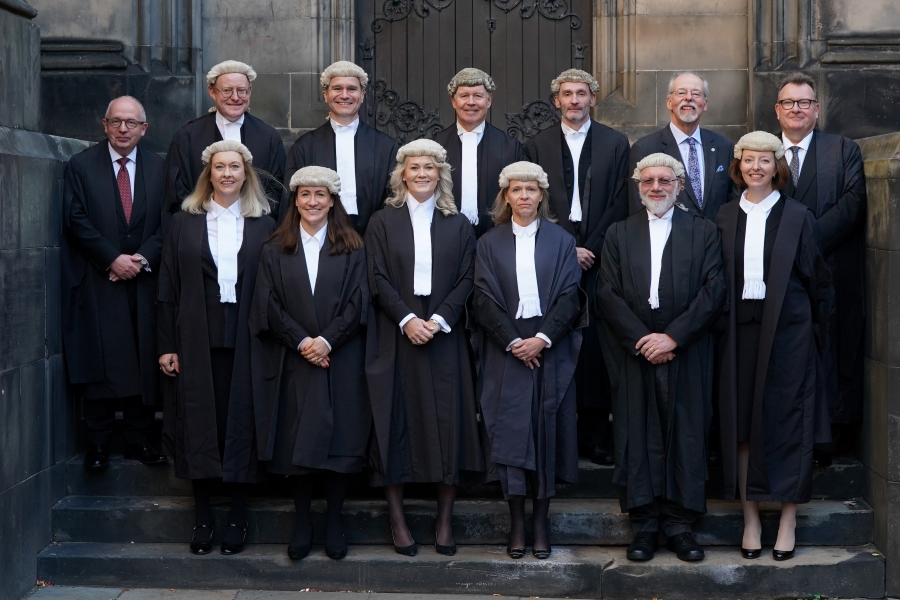Lord President outlines priorities at Opening of the Legal Year
22 Sep

THE need for continuing reform, modernisation and investment across Scotland’s justice system, and safeguarding the rule of law are key priorities, the Lord President said today.
Lord Pentland was speaking at the Opening of the Legal Year held in Parliament House. This year marked the first such ceremony to be presided over by Lord Pentland, who was appointed as Lord President earlier this year.
“The fiscal position affecting the whole of the public sector presents serious challenges. These challenges extend to the Scottish Courts and Tribunals Service (SCTS) and our ambitious plans for continuing modernisation and improvement,” he said.
However, while levels of work had risen in the courts, tribunals and the Office of the Public Guardian, progress had been made in the past year. Examples here included the launch of livestreaming in the Criminal Appeal Court, the national rollout of a summary case management scheme in the sheriff courts, and the introduction of a new case management system for the Office of the Public Guardian.
“For this important progress to be maintained, we do need the justice system – not just the SCTS – to be effectively funded and all parts of the sector enabled to participate fully in these necessary reforms.”
Lord Pentland welcomed the 11 new King’s Counsel: Gordon Balfour, Advocate; Leigh Lawrie, Advocate; Ceit-Anna MacLeod, Advocate; Drew McKenzie, Advocate; David McLean, Advocate; Rachel Shewan, Advocate; Emma Toner, Advocate; David Turner, Advocate; Yvonne Waugh, Advocate; David Dickson, Solicitor Advocate; and Gordon Martin, Solicitor Advocate.
He also welcomed three new Honorary King’s Counsel: Dr Alastair Brown; Professor Lorne Crerar; and Judge Norman McFadyen.
Speaking at the ceremony the Dean of the Faculty of Advocates, Roddy Dunlop KC, said: “Scotland faces an unprecedented legal aid crisis that threatens access to justice for our most vulnerable citizens. The stark statistics paint a devastating picture: legal aid solicitor numbers have plummeted by 12% in just three years, with just over 1,100 solicitors now registered for criminal and children's legal aid. More alarmingly, 41% of current legal aid solicitors plan to cease this work within two years or remain uncertain about continuing.
“I am hopeful of a swift resolution of what is fairly described as a crisis. But the momentum must be maintained, and discussions cannot be allowed to stall. Technological improvements will be as of naught if legal representation cannot be secured,” said Mr Dunlop.
He echoed the Lord President on the need to defend judicial independence, saying: “Judicial independence is not a privilege for judges – it is the foundation of impartial justice and democratic governance. Every attack on judicial integrity, whether through misrepresentation of decisions or inadequate defence of the judiciary by parliamentarians, corrodes public confidence in our legal system.”
In her remarks Patricia Thom, President of The Law Society of Scotland, said that “access to justice is one of the fundamental principles that underpins our justice system, which is why our ongoing dialogue with the Scottish Government is so important. An enduring solution must be found urgently to resolve the legal aid crisis that has been intensifying for well over a decade.”